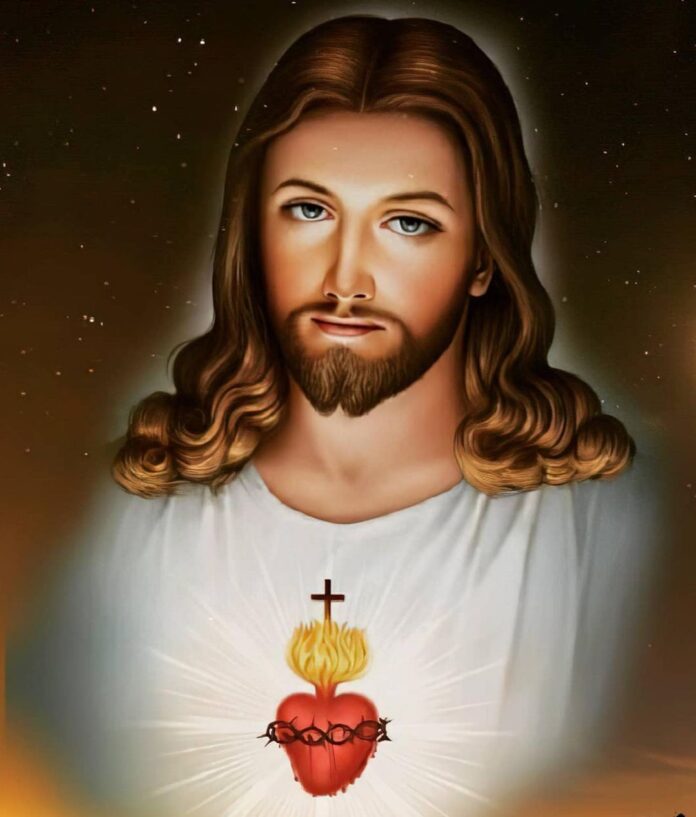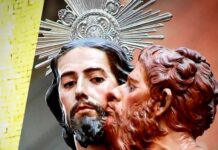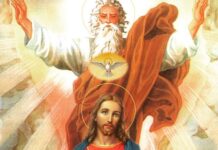Stay blessed. The Lord is with you. Stay blessed. The Lord is coming soon.
We are going to discuss something important today. It is about a book in the Bible, and it is the Book of Hope. Confused where to find it in the Bible? Do not worry. It is the last book of the Bible, the Book of Revelation. We fondly call it the Book of Hope, because no other book expounds the theme of hope, better than the Book of Revelation.
We started with blessing. The Book of Revelation guarantees a blessing to us: ‘Blessed is the one who reads aloud the words of the prophecy, and blessed are those who hear and who keep what is written in it’ (Rev 1:3). If a book is accompanied by such a great promise, why should we hesitate to call it a Book of Hope? The message of Revelation is that Jesus is on the throne, and that he is in full control, and that he is coming back again to take us with him. Is it not a message of hope? If you are serious about getting a blessing from the Lord, start reading the Book of Revelation today itself, fully trusting the promise of our Lord. It will help us understand Revelation better.
Why should we study Revelation? Some people study it to quench their curiosity about end times. Some others want to get more information about the prophesied Antichrist and false prophet. Yet some others want to know the relevance of microchips and the number 666. The Covid outbreak has prompted a lot of people to relate it with the prophecies of Revelation. Their goals may differ, but all of them, in one voice say that Revelation is a hard text to understand.
We do not think so. Because our purpose in studying the last book of the Bible is totally different from theirs. Let me explain.
Apart from the Book of Revelation John has written another four books of the Bible. They are a gospel and three epistles. The Gospel was written with a single purpose: ‘But these are written so that you may come to believe that Jesus is the Messiah, the Son of God, and that through believing you may have life in his name’ (Jn 20:31). Epistles are written for re-assuring the faithful that they have eternal life reserved for them. ‘I write these things to you who believe in the name of the Son of God, so that you may know that you have eternal life’ (1 Jn 5:13). We observe a gradual and systematic progression in the way John edifies the churches. By the time we reach Revelation, we find the narrative taking a different direction. It is written for preparing the readers to be in a state of readiness at all times to welcome the returning Lord. Because, ‘the time is near’ ( Rev 1:3).
Yes, the time is near and this is the relevance of studying the Book of Revelation. Our sole purpose in studying the Revelation is to get ready for the great event that is going to happen soon. If you believe that the time is near, then listen to what Luke says about this time, the time immediately preceding the consummation of everything. ‘Now when these things begin to take place, stand up and raise your heads, because your redemption is drawing near’ (Lk 21:28). Isn’t it news of great hope that our redemption is drawing nearer and nearer?
The Bible is the guide to solve all our questions about life, death and of course life after death. The answers are scattered here and there. But the answer key is very much there in the last pages. Once we get to know the answer key, it is easy to solve the problem. In fact, this answer key is the core message of Revelation; that Jesus Christ reigns, that he is in full control, and that he is coming soon to take us home. Once we know this, Revelation becomes an easy book to read and understand.
Make no mistake. Revelation is the book for the end times. You might have seen some theologians arguing that Revelation was written to strengthen the Christians during Roman persecution. It is only part of the story. When we analyse the language, the imagery and the symbols used in the Book of Revelation, it will surprise us how future things were hidden in the current template. John didn’t want the enemies of Christianity to understand the messages. But at the same time his people should not miss the points too. In this predicament, apocalyptic style of writing came in handy to edify the Christians in faith and encourage them to be in a state of constant readiness. In this way, the Book of Revelation serves two purposes simultaneously; first strengthening the faith of those Chrsitians going through severe persecution and then preparing them for the glorious second coming of our Lord Jesus Christ.
When we say that we are living in the end times, do not forget that the Christians of the first century also believed that Jesus Christ would return in their generation. Difference between them and our generation is that they were living in perpetual readiness to welcome the returning Lord. Are we ready? Revelation is an invitation to get ready. Because ‘the time is near’. This readiness is not passive readiness, withdrawing from all our activities. Instead it should be active readiness, a state of constant vigil and expectation even while discharging our normal duties and responsibilities.
With these few words as introduction, we are embarking on our journey through the Book of Revelation with infinite hope in our hearts. God willing, we will study it chapter wise and in some cases, subject wise. We invite our readers to follow us in this spiritual journey, with a prayerful heart. And do not forget to read the Book of Revelation everyday, as it will bring us Lord’s blessings in abundance and also make it easy to understand the message of Revelation.
CHAPTER 1
——————————–
As for this first day, we discuss chapter 1. Here the major themes are the source of revelation and its authenticity, and how it was revealed. It contains a greeting of grace and peace from the Triune God and is followed by a prophecy: ‘Look! He is coming with the clouds; every eye will see him, even those who pierced him; and on his account all the tribes of the earth will wail’ (Rev 1:7). The prophecy tells us that the second coming of Jesus Christ is an event applicable to every human being on earth. Every tribe and every nation will witness the second coming of Lord Jesus Christ. The last generation will surely witness it; believers and gentiles alike, those who loved Jesus and those who hated him alike. In his first coming nobody gave him space. His own people rejected him. But in the second coming nobody can ignore him, because he is coming with great glory and power. The earth will tremble when the Lord places his feet on the Mount of Olives( Zech 14:4).
Daniel also has recorded the vision of a person coming with the clouds: ‘As I watched in the night visions, I saw one like a human being (one like a son of man) coming with the clouds of heaven..'( Dan 7:13). As students of the Bible, we should always keep in mind that for every New Testament prophecy, there was an Old Testament parallel.
After the prophecy about the Son of Man, comes the description of God as the Alpha and the Omega; ‘who is and who was and who is to come,the Almighty’. These words are simply an iteration of what we already know; that God is eternal.
Why did Jesus select John to give the Revelation? I think it was because ofJohn’s intimacy with Jesus. Revelations are reserved for those who maintain an intimate relation with God at all times. Jesus Christ appeared to John in the image resembling that of the Son of Man, an obvious reference to our Saviour. John had no doubt about the person standing before him and there is no need to suspect the veracity of what John says. As to its authenticity, it was the revelation of Jesus Christ, which he in turn gave to his servant John by sending his angel. The revelation originates from God, transmitted from Jesus Christ to John through an angel. Authenticity of the message is established beyond any doubts.
John introduces himself as ‘their brother in Christ’. He could have introduced himself as the beloved Apostle of Jesus, the last living witness to the passion of our Lord, as an elder of the Church or as a person who preached the gospel to them. No! his wish was to be called ‘brother in Christ’. Even today, this is the best salutation one can get from a fellow Christian.
John was on an island called Patmos at the time of writing this book. If you search for Patmos today on the net, you will get the picture of a beautiful Greek island, home to around three thousand people. But in those days, Patmos was an island used to exile criminals, and confessing one’s faith in Jesus Christ was one crime that deserved either death or deportation. As a prisoner it was an ideal location for John to meditate on the mysteries of life. Patmos being a small island, whichever direction he turned, John could see the vast expanses of water only day in, day out. He might be fed up with this sight every day. It is quite natural that John used the symbol of the sea a number of times in the Book of Revelation. Finally, he might have enjoyed a sigh of relief when he got the vision of the New Heaven and New Earth because ‘the sea was no more’ (Rev.21:1).
When did John receive the Revelation? As we know revelations do not happen every day. It needs an ideal time as well. We read: ‘I was in the spirit on the Lord’s day, and I heard behind me a loud voice like a trumpet saying, ” Write in a book what you see and send it to the seven churches, to Ephesus, to Smyrna, to Pergamum, to Thyatira, to Sardis, to Philadelphia, and to Laodicea” (Rev 1: 10).
Revelations happen to those who are filled with the Spirit on the Lord’s day. Just pause for a moment and recollect how do we observe the Lord’s day? If our God sends his angel to us with a message on a Sabbath day, will he find us filled with the Spirit?
John was mandated to send the book containing his visions to seven churches indicating that those messages were intended for the entire Church and not exclusively for those named therein. We know that in the Bible, seven is the number representing perfection or fullness.
Earlier we have seen a prophecy about the Son of Man coming with the clouds. But now John gets the vision of the Son of Man himself. John could not withstand the glory and majesty of the Lord and he fell at Christ’s feet as though dead. But he is consoled with the assurance that Christ has the keys of death and of Hades with him. He was dead, but now he is living. And he is alive forever and ever. When he says ‘ Do not be afraid’, why should we fear? What further hope we need, when the person who tells us not to be afraid of anything, is with us at all times! With the vision of the Son of Man, we are entering the core of Revelation, starting with the letters to seven churches. Jesus Christ appeared as standing in the midst of seven lampstands and holding seven stars in his right hand. Jesus himself explains to John that the lampstands represent seven churches and stars represent the angels of those churches. What we should learn from this passage is that we should never try to limit the presence of Jesus to a particular church. He is there in the midst of all churches. He is coming armed with a sharp, two- edged sword, that we understand as the Word. Elsewhere we read that Jesus is coming to make war against those who do not repent, with the sword of his mouth. So, be careful with the Word, because it will hurt the preacher and listener alike.
We hope to return soon with the next article in this series for which we need your prayers. Besides, we welcome your feedback about this article as well. We admit with all humility that it is beyond human intelligence to write anything worthy about the Book of Revelation, for which we need the wisdom from above. May the Virgin of the Revelation help us in this task through her intercession.














